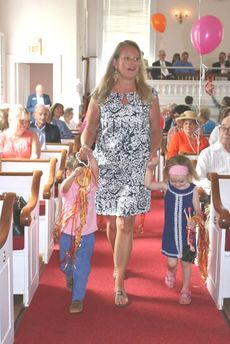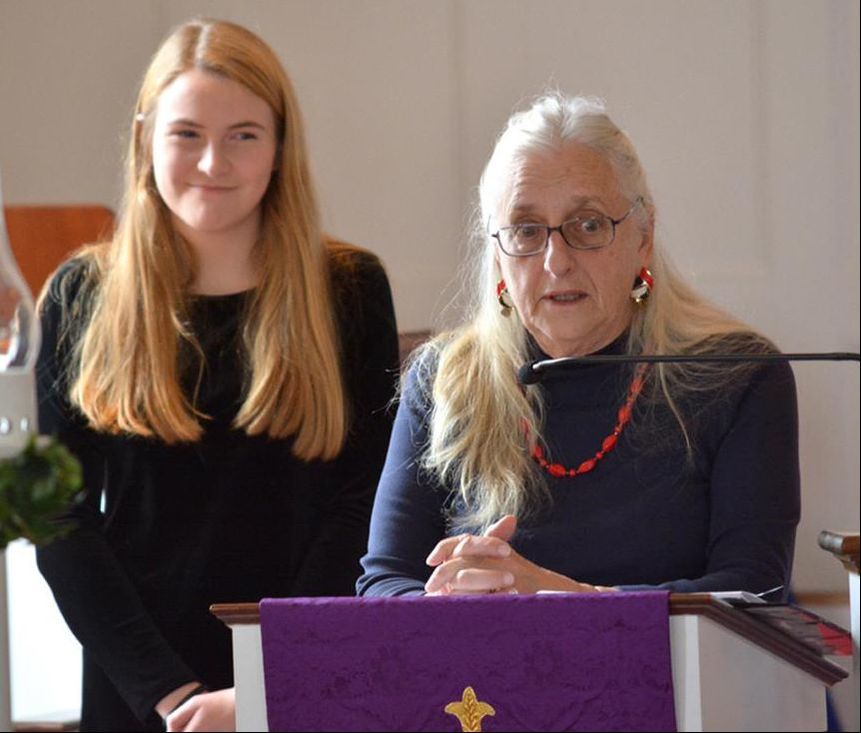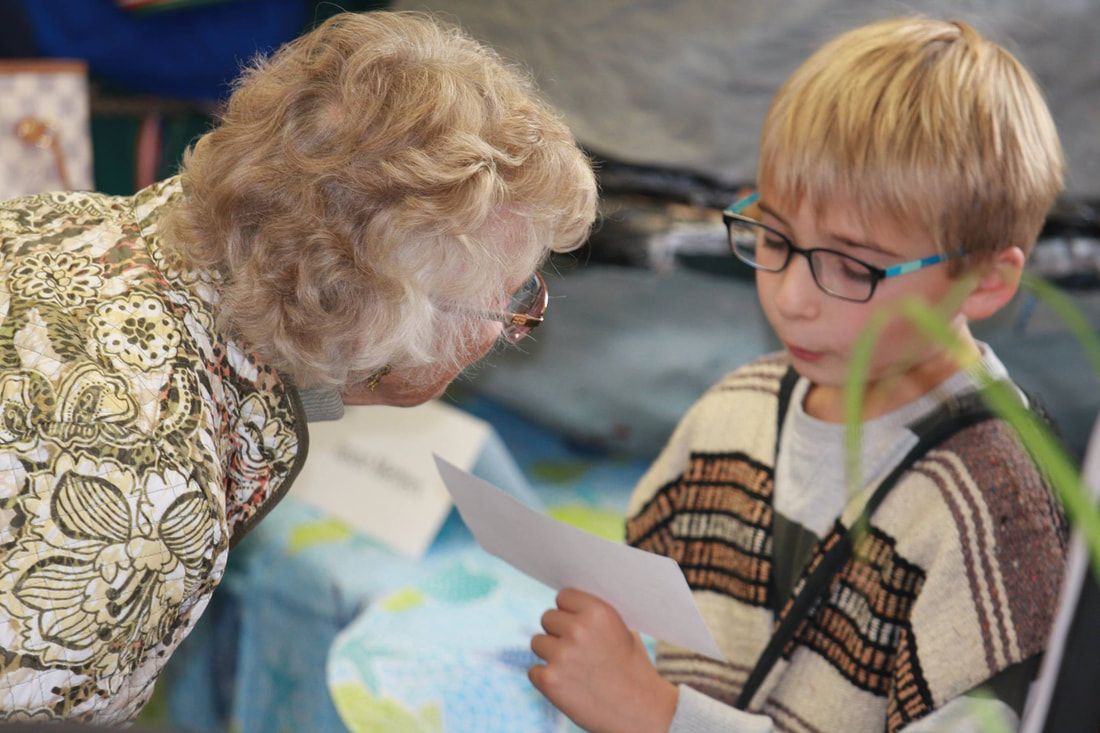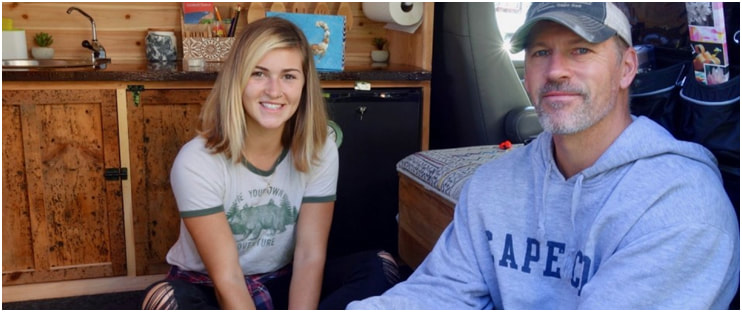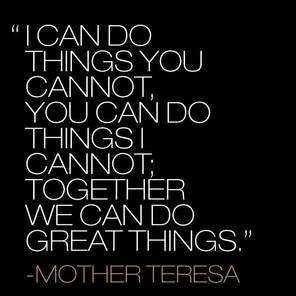This is a story that perfectly illustrates God's gift of abundance that we are celebrating today in worship.
There is a lot written today about two different mindsets: the mindset of scarcity and the mindset of abundance.
The scarcity mindset is the belief that everything is limited and thus it is better to be selfish than generous. It is a cynical term by nature as it is based around the idea that there's not enough to go around. This mentality generates feelings of fear, anxiety and insecurity. In contrast, the abundance mindset is rooted in the belief that there is more than enough for everyone. This mentality generates feelings of worth and security.
The disciples in the story take on a mindset of scarcity. And who can blame them? Jesus has just given them the impossible charge of feeding 5000 people with two fish and five loaves. Naturally they look to their fearless leader as if he had 10 heads! You expect us to do what????? And can you blame them? Imagine this Thursday the guests are about to arrive and you have two turkey legs and five rolls. And your spouse says, “take it easy we have more than enough to go around”.
But this is not a spouse. This is no ordinary person.
This is Jesus.
And Jesus like any great host, leader, miracle maker looks to them and says make it work. He doesn't do so because he thinks they will fail but because he knows there will be an abundance of food, plenty to serve all. I love the creative license that Susan Bock the writer of today’s skit takes with the story as it perfectly illustrates the contrast in the mindsets of scarcity and abundance. The disciples say "this is ALL we have"? IN contrast Jesus says "You have ALL this!"
Most of you have heard the story of what I consider my home church, Christ Methodist by the Sea, in Vero Beach, Florida. The beach side of Vero Beach is home to mainly retirees particularly at that time and for a little over a year I was the only child in the congregation.
And YET they always, always, EVERY Sunday had a children's message and always, always, EVERY Sunday had Sunday school - EVERY Sunday for this one child. This was a church that was a living example of a collective mindset of abundance.
They could have like so many churches said, “well with only one we're not gonna bother with the children's message or Sunday school what's the point?” Or even worse say, “well, we don't have any kids” even though they had one.
No instead they said, “WELL, WE HAVE ONE!”
And they celebrated that one! Now consider the impact of having this approach. I can tell you their church school program grew tremendously and by the time I was in college they were overflowing with children. And the impact it had on this one child is without question. What I do here with these children is a direct result of the gratitude I have for that little church recognizing that what God had given them - that one little child was enough.
Church folks love to quantify things. How many? How much? It is honestly our favorite question to ask. Well how many were there? How many did you have? And believe me, I'm not calling anyone out because I am as guilty as the rest of them. When we hear there are many, we kind of puff our chest out a little bit. And when there are a few, we feel deflated or worse fearful and anxious. It's as if the numbers are more important than the quality of the experience and yet we know that is not true. Yet we can't help ourselves. But we rarely ask, tell me about the experience? What did the participants do? How did they grow from it? Did they make a connection? And it's been like this for a long time. Years and years ago David Erickson and I went through ledgers and notebooks and minutes from the church's history. Everything boiled down to either the state of the building or how many people attended. I can tell you that on January 13th 1929 twenty-two children attended church school and they gave $1.57 in offering. I can't, however, tell you what they were taught, what their lessons looked like, what activities they participated in, what they learned, how the experience was or how they felt. I hate to say it, but by the looks of it, our church history looks like one more grounded in the mindset of scarcity than abundance. I'm not just picking on us; we're not alone. Every church leans in this direction, every organization in fact. We as individuals live like this with this mentality of scrambling to acquire and be more.
There has been a lot of commentary and conjecture on today's story. Was this a miracle? Did Jesus wave a hand and an abundance of food appeared? Did he keep breaking pieces of bread and more and more appeared? Or did people come together contributing what they had until all were fed? I think the “hows” are less important to the story. The takeaway here is really that exchange between the disciples and Jesus. Jesus re-affirming to them yet again, like a loving parent, “It’s okay – it’s all going to be okay”. God provides. God always provides
And so today, let's leave here with a goal of shifting our mentality from one of scarcity to one of abundance. Let’s leave here as members of this church but also as individuals telling ourselves not but this is all I have but instead with wonder and gratitude and Thanksgiving let us say look at all I have been given.

